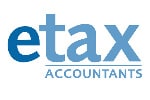 Many Lions fans around Australia are taking a short break from their footy to get stuck into their tax returns this month.
Many Lions fans around Australia are taking a short break from their footy to get stuck into their tax returns this month.
But what about the AFL? How does Australia’s biggest league handle tax time?
We’ve teamed up with Brisbane-born online tax return company Etax Accountants to create this top five list of tax facts, for you to have up your sleeve next time a chat at a barbecue turns from touches and turnovers to taxation.
Fact #1: The AFL Financial Year is different
While most company financial years follow the standard July to June model, the AFL and its clubs flow with the men’s premiership season, with their financial years beginning in November and ending in October.
Fact #2: The AFL and Lions don’t pay tax (well, most taxes).
Both the AFL and the Brisbane Lions are not-for-profit companies. Not-for-profits can be exempt from income tax if certain requirements are met. This helps the Lions squeeze every dollar into important club development programs like the Hyundai Help for Kids Academy and the Lions Women’s Team.
Fact #3: The income supplied by the AFL to the Lions is not taxed.
The AFL provides funding assistance to several clubs. Fans can be rest assured all of this money gets used on club programs, as this ‘income’ is exempt from tax thanks to the Lions tax exempt status.
Fact #4: Some taxes are unavoidable.
The tax man will always come knocking. In the Lions case, some taxes that are incurred by the club include GST, Payroll Tax, Gaming Machine Tax, Fringe Benefit Tax and PAYG tax (which is incurred by employees of of the club).
Fact #5: Players pay tax, just like you.
Players are employed by the club and pay tax on their income just like the rest of us.
If you’d like an easy way to boost your 2017 tax return online, visit Etax.com.au.




